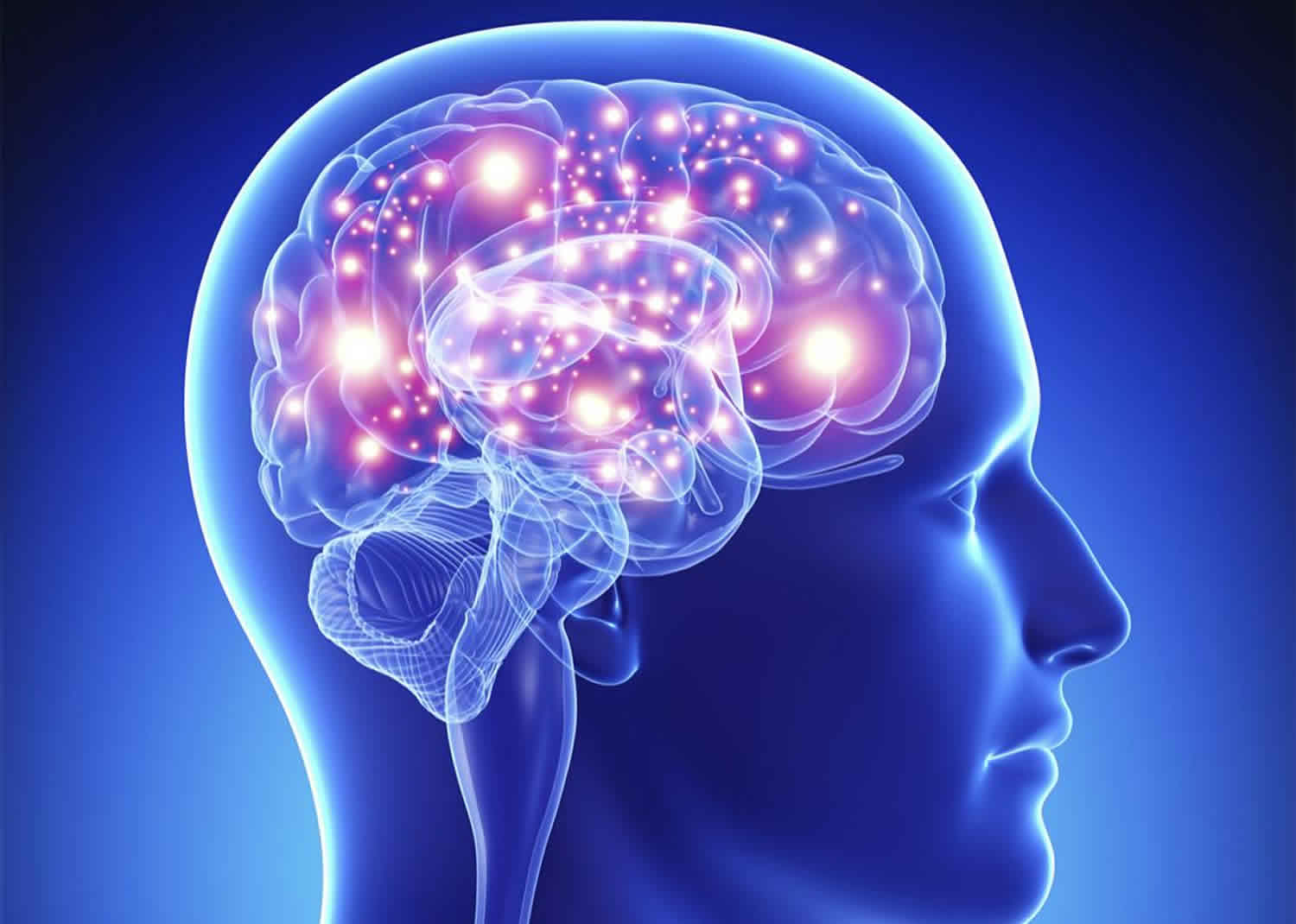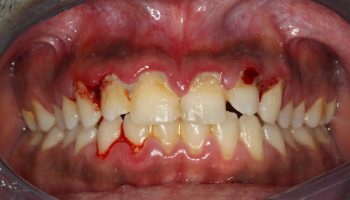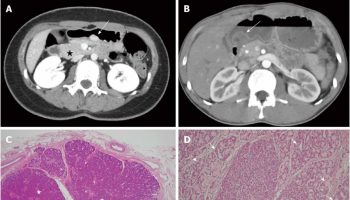What is wet brain
‘Wet brain’ also called to as Wernicke-Korsakoff syndrome or wet brain syndrome, is a degradation of the brain (also called brain atrophy) caused by vitamin B1 (thiamine) deficiency that is characterized by clinical triad consisting of altered mental status (i.e., confusion or dementia), nystagmus (or ophthalmoplegia), and ataxia 1. Unfortunately, less than a third of patients present with this clinical triad 2.
Wet brain is actually a manifestation of two conditions; Wernicke’s encephalopathy and Korsakoff’s psychosis (Korsakoff syndrome). Both Wernicke’s encephalopathy and Korsakoff’s psychosis present symptoms of degradation of the brain, however Korsakoff’s psychosis affects memory impairment while Wernicke’s encephalopathy is characterized by visual and gait impairments. While these conditions can occur separately, they are commonly diagnosed together.
The first phase of wet brain is Wernicke’s encephalopathy. This phase is usually brief, however, the onset of its symptoms can happen quickly. Classic symptoms of Wernicke’s encephalopathy can include:
- Loss of muscle coordination leading to unsteady gait and leg tremors
- Vision changes
- Eyelid drooping
- Confusion
- Double vision
- Loss of mental activity
Patients do not need to present all symptoms of Wernicke’s encephalopathy to be diagnosed with the disorder. In some patients, the symptoms of Wernicke’s encephalopathy may be mild and unnoticeable for the most part. If left untreated, it can cause coma or even death in many patients.
The second phase of wet brain is Korsakoff’s psychosis (Korsakoff syndrome). Characterized by fast onset of memory impairment without any other decline in intellectual functions, Korsakoff’s psychosis (Korsakoff syndrome) develops as a result of the brain damage caused by Wernicke’s encephalopathy. The part of the brain that is damaged by Wernicke’s encephalopathy directly relates to memory creation and retention.
The symptoms of Korsakoff’s psychosis will generally develop once the symptoms of Wernicke’s encephalopathy go away. These symptoms can include:
- Amnesia
- Loss of memory – from mild to severe
- Making up memories or stories that never happened
- Hallucinations
- Inability to form new memories
Korsakoff’s psychosis (Korsakoff syndrome) often follows or accompanies Wernicke encephalopathy.
- If treated quickly, Korsakoff’s psychosis (Korsakoff syndrome) development may be prevented with thiamine treatments.
- Thiamine needs to be administered quickly in both dose and duration.
- Thiamine treatment may result in noticeable improvements in mental status after only 2 to 3 weeks of therapy.
- With treatment, Wernicke’s encephalopathy will not necessarily progress to wet brain syndrome (Wernicke-Korsakoff syndrome).
To reduce the risk of Wernicke-Korsakoff syndrome, limit the intake of alcohol and ensure that proper nutrition needs are met.
- Proper nutrition which, in combination with thiamine supplements, may reduce the risk of development of wet brain syndrome (Wernicke-Korsakoff syndrome).
- Supplemental thiamine and good nutrition may help heavy drinkers who refuse to or are unable to quit.
The prevalence of wet brain syndrome is between 0% and 2% worldwide 1. Specific subpopulations have higher prevalence rates including people who are homeless, older individuals living alone or in isolation, and psychiatric inpatients. Prevalence is not connected to alcohol consumption per capita. For example, in France, a country that is well known for its consumption of wine, the prevalence is approximately 0.4%, while Australia has a prevalence of approximately 3% 3.
What causes wet brain syndrome?
The cause of wet brain (Wernicke-Korsakoff syndrome) is a deficiency of thiamine or vitamin B1. Thiamine is required for the presence of several enzymes that assist in breaking down sugar and carbs into other energy molecules. The absence of this results in brain damage. Individuals with poor nutrition for any reason are at risk for wet brain syndrome. The most common social factor associated with wet brain syndrome is chronic alcohol abuse which leads to decreased absorption and utilization of thiamine. Because high levels of thiamine are stored in your heart, kidney, brain, and liver, prolonged or excessive amounts of alcohol consumption can prevent the absorption of thiamine into your liver or gastrointestinal tract. Excessive alcohol consumption can also have a negative effect on the thiamine currently stored in your system.
However, it is important to note that there are nonalcoholic causes of thiamine deficiency which can also produce wet brain syndrome (Wernicke-Korsakoff syndrome) 4. These include individuals with malnutrition, starvation, schizophrenia, anorexia nervosa, prisoners of war, and terminal malignancies. In the past, baby formula which was deficient in thiamine also led to wet brain (Wernicke-Korsakoff syndrome). Wet brain (Wernicke-Korsakoff syndrome) also can develop during the first trimester of pregnancy in women who develop hyperemesis gravidarum. Another common cause is bariatric surgery and malignancies of the gastrointestinal (GI) tract.
Brain atrophy associated with wet brain syndrome (Wernicke-Korsakoff syndrome) occurs in the mammillary bodies, the cerebellum, the thalamus, the frontal lobe, the periaqueductal grey, the walls of the third ventricle, and the floor of the fourth ventricle. In addition to the damage seen in these areas, there may be damage to the cortex, although this may be due to the direct toxic effects of alcohol as opposed to thiamine deficiency.
The amnesia associated with wet brain syndrome (Wernicke-Korsakoff syndrome) is a result of atrophy of the structures of the diencephalon (thalamus, hypothalamus, and mammillary bodies) and is similar to amnesia that is present as a result of damage to the medial temporal lobe. It has been argued that the memory impairment can occur as a result of damage along any part of the mammillothalamic tract, which may explain how wet brain syndrome can develop in patients with damage exclusively to either the thalamus or the mammillary bodies.
Risk factors for wet brain syndrome
Risk factors for wet brain syndrome are related to your diet and lifestyle.
The major risk factors for developing wet brain syndrome are malnourishment and chronic alcohol misuse. Other risk factors for wet brain syndrome include:
- Inability to afford medical care and proper food
- Kidney dialysis, which reduces vitamin B-1 absorption
- HIV/AIDS, which makes you more likely to develop conditions that lead to vitamin B-1 deficiency
- Cancers that have spread throughout the body
- Extreme nausea and vomiting during pregnancy (hyperemesis gravidarum)
- Heart failure (when treated with long-term diuretic therapy)
- Long periods of intravenous (IV) therapy without receiving thiamine supplements
- Long-term dialysis
- Very high thyroid hormone levels (thyrotoxicosis)
Wet brain syndrome prevention
You can prevent wet brain syndrome by avoiding alcohol and eating a balanced diet rich in vitamin B-1.
Foods rich in vitamin B-1 include:
- lean pork
- rice
- peas
- whole wheat bread
- spinach
- oranges
- milk
Wet brain signs and symptoms
An individual with wet brain syndrome will usually present with (1) ocular disturbances which may include diplopia, painless vision loss, or strabismus, (2) gait abnormalities that include a wide-based, short-stepped gait and an inability to stand or ambulate without assistance, and (3) mental status changes that include apathy, paucity of speech, and indifference to the environment. As the disorder progresses, other symptoms that may develop include agitation, anger, hallucinations, and confabulations.
Prominent symptoms of Wernicke’s encephalopathy are:
- double vision
- a drooping upper eyelid, also known as ptosis
- up-and-down or side-to-side eye movements
- loss of muscle coordination, or ataxia, which may interfere with walking
- a confused mental state, which frequently leads to combativeness or violent behavior
Wernicke’s encephalopathy can later develop into Korsakoff’s syndrome. People who have wet brain syndrome have a variety of issues relating to memory. You may experience memory loss or be unable to form new memories.
You may also have the following symptoms if you have wet brain syndrome:
- amnesia for events that happen after the onset of the disorder
- difficulty understanding the meaning of information
- difficulty putting words into context
- hallucinations
- exaggerated storytelling, or confabulation.
Wet brain syndrome possible complications
Wet brain syndrome complications that may result include:
- Alcohol withdrawal
- Difficulty with personal or social interaction
- Injury caused by falls
- Permanent alcoholic neuropathy
- Permanent loss of thinking skills
- Permanent loss of memory
- Shortened life span
Mental Status Complications
Global confusional often resolves gradually after treatment.
If an amnestic deficit is present, it may manifest as the signs of apathy and global confusion resolve.
One in five patients who demonstrate signs of the amnestic state after treatment has been initiated will have a complete with most patients having varying degrees of persistent learning and memory impairment.
Maximum recovery may take years and depends on abstinence from alcohol.
Once patients with Korsakoff psychosis have recovered, they do not demand alcohol, but they will accept it if offered.
Ataxic Complications
Approximately half of the patients recover completely from ataxic symptoms, and the other half have incomplete recovery, with a residual slow, shuffling, wide-based gait and the inability to tandem walk.
Vestibular dysfunction also improves about half the time.
Ocular Complications
Patients who recover do so in a particular sequence.
Improvement of ocular abnormalities is the most dramatic, usually occurring within hours of thiamine administration.
Failure of ocular abnormalities to respond to thiamine should raise doubt as to the diagnosis.
Vertical nystagmus may persist for months.
Fine horizontal nystagmus can persist indefinitely, but patients completely recover from sixth nerve palsies, ptosis, and vertical-gaze palsies.
Wet brain diagnosis
Diagnosing wet brain syndrome isn’t always easy. An individual with wet brain syndrome is often mentally confused. This can make communication with the doctor difficult. Your doctor may overlook the possibility of a physical disorder if you’re confused.
The diagnosis of wet brain syndrome (Wernicke-Korsakoff syndrome) is made by the history and clinical findings supplemented with lab studies showing thiamine deficiency. Prophylactic thiamine administration is relatively safe and should be started even if the diagnosis has not been confirmed 5.
Wet brain diagnosis will usually involve a series of tests including thiamine and other vitamin levels in the blood, CT or brain scans, liver function, and MRIs to measure for bleeding or tumors in the brain. Along with the results of these tests, cognitive and memory performance will also be measured to compare with the symptoms of Wernicke’s encephalopathy and Korsakoff’s psychosis individually.
Examination of the nervous/muscular system may show damage to many nerve systems:
- Abnormal eye movement
- Decreased or abnormal reflexes
- Fast pulse (heart rate)
- Low blood pressure
- Low body temperature
- Muscle weakness and atrophy (loss of tissue mass)
- Problems with walk (gait) and coordination
The person may appear poorly nourished. The following tests are used to check a person’s nutrition level:
- Serum albumin (relates to person’s general nutrition)
- Serum vitamin B1 levels
- Transketolase activity in red blood cells (reduced in people with thiamine deficiency)
Liver enzymes may be high in people with a history of long-term alcohol abuse.
A brain MRI may show changes in the tissue of the brain. But if wet brain syndrome (Wernicke-Korsakoff syndrome) is suspected, treatment should start immediately. Usually a brain MRI exam is not needed.
Wet brain treatment
The goals of wet brain treatment are to control symptoms and to prevent the wet brain syndrome (Wernicke-Korsakoff syndrome) from getting worse. Some people may need to stay in the hospital early in the condition to help control symptoms.
Once wet brain is diagnosed in an alcoholic patient, a thiamine injection will be promptly administered in an attempt to get thiamine levels back up. While the thiamine injection can improve confusion and unsteady gait in a patient, any memory loss the patient currently suffers from will likely remain the same.
Immediate abstinence from alcohol is also recommended, along with a well balanced diet. Inpatient rehab along with other drug rehabilitation programs are highly recommended to ensure the proper detox of a patient suffering from alcoholism as well as to reduce the likelihood of a relapse down the road.
Without treatment, wet brain syndrome (Wernicke-Korsakoff syndrome) will likely result in death. With treatment, it is possible to control and improve some of the symptoms associated with the syndrome such as confusion and unsteady gait. If the syndrome is caught early enough, it is possible to administer treatment in time to help reverse some of the effects that have already started taking place.
Monitoring and special care may be needed if the person is:
- In a coma
- Lethargic
- Unconscious
Vitamin B1 is usually given by injection into a vein or a muscle as soon as possible. This may improve symptoms of:
- Confusion or delirium
- Difficulties with vision and eye movement
- Lack of muscle coordination
Vitamin B1 often does not improve loss of memory and intellect that occur with Korsakoff psychosis.
Stopping alcohol use can prevent more loss of brain function and damage to nerves. A well-balanced, nourishing diet can help, but it is not a substitute for stopping alcohol use.
Wet brain syndrome prognosis
Without treatment, wet brain syndrome (Wernicke-Korsakoff syndrome) gets steadily worse, and can be life threatening. Wet brain syndrome (Wernicke-Korsakoff syndrome) is a long-term disorder which is often progressive. With treatment, it is possible to control symptoms (such as uncoordinated movement and vision difficulties). Most symptoms of Wernicke’s encephalopathy can be reversed if detected and treated promptly and completely. Stopping alcohol use may prevent further nerve and brain damage. However, improvement in memory function is slow and, usually, incomplete. Without treatment, these disorders can be disabling and life-threatening.
It is very rare for the individual with wet brain syndrome (Wernicke-Korsakoff syndrome) to recover fully even with aggressive treatment. After thiamine treatment, the symptoms of encephalopathy will improve in 5 to 12 days. The patient should be offered oral thiamine and consulted for rehabilitation and treatment of other comorbid conditions. Most patients with Wernicke-Korsakoff syndrome need long-term care in a chronic care facility. Their prognosis is guarded 6.
Wet brain life expectancy
Life expectancy depends on the stage wet brain syndrome at presentation and time of treatment. Approximately 25% of patients with wet brain syndrome (Wernicke-Korsakoff syndrome) require long-term institutionalization 1. Patients depending on long-term care often have one or more comorbidity (somatic and psychiatric).
Mortality may occur secondary to infections and hepatic failure, but some deaths are attributable to defects of prolonged thiamine deficiency. The mortality rate is 10-15% in severe cases.
References- Akhouri S, Newton EJ. Wernicke-Korsakoff Syndrome. [Updated 2019 Mar 15]. In: StatPearls [Internet]. Treasure Island (FL): StatPearls Publishing; 2019 Jan-. Available from: https://www.ncbi.nlm.nih.gov/books/NBK430729
- Gerridzen IJ, Joling KJ, Depla MF, Veenhuizen RB, Verschuur EML, Twisk JWR, Hertogh CMPM. Awareness and its relationships with neuropsychiatric symptoms in people with Korsakoff syndrome or other alcohol-related cognitive disorders living in specialized nursing homes. Int J Geriatr Psychiatry. 2019 Mar 10
- Arts NJ, Walvoort SJ, Kessels RP. Korsakoff’s syndrome: a critical review. Neuropsychiatr Dis Treat. 2017;13:2875-2890
- Doğan İG, Altiokka GU, Türker F, Saka B, Bilgiç B, Orhan EK. Wernicke’s Encephalopathy due to Non-Alcoholic Gastrointestinal Tract Disease. Noro Psikiyatr Ars. 2018 Dec;55(4):307-314
- Nakamura ZM, Tatreau JR, Rosenstein DL, Park EM. Clinical Characteristics and Outcomes Associated With High-Dose Intravenous Thiamine Administration in Patients With Encephalopathy. Psychosomatics. 2018 Jul – Aug;59(4):379-387
- Isenberg-Grzeda E, Chabon B, Nicolson SE. Prescribing thiamine to inpatients with alcohol use disorders: how well are we doing? J Addict Med. 2014 Jan-Feb;8(1):1-5.





